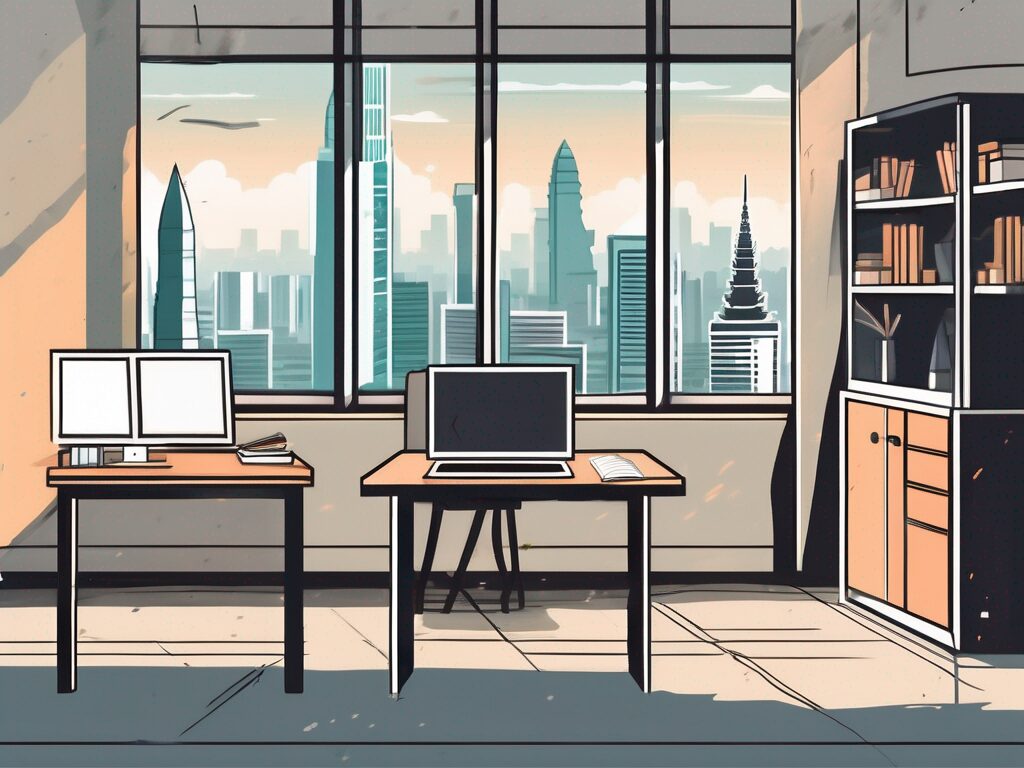Bangkok, the bustling capital of Thailand, is a vibrant city that attracts many expatriates, including teachers, from around the globe. With its rich cultural heritage, delectable cuisine, and affordable living costs, it’s no wonder that Bangkok is a popular destination for those looking to live and work abroad. But what exactly does it cost to live in this Southeast Asian metropolis? Let’s delve into the details.
Accommodation Costs
One of the major expenses you’ll encounter while living in Bangkok is accommodation. The cost can vary greatly depending on the location, type of property, and amenities included.
City Centre vs Suburbs
Living in the city centre, close to the hustle and bustle, is naturally more expensive than residing in the suburbs. A one-bedroom apartment in the heart of the city can cost anywhere between 15,000 to 30,000 Thai Baht (£350 to £700) per month. On the other hand, the same type of accommodation in the outskirts of the city can be rented for as low as 5,000 to 10,000 Thai Baht (£115 to £230) per month.
Condominiums vs Apartments
Condominiums, often equipped with amenities such as a gym, swimming pool, and security services, are pricier than regular apartments. A condo in a decent area can set you back around 20,000 to 40,000 Thai Baht (£460 to £920) per month, while a standard apartment without these extra facilities can be rented for a much lower price.
Food and Drink Costs
Another significant aspect of the cost of living in Bangkok is food and drink. The city is renowned for its street food, which is not only delicious but also incredibly affordable.
Street Food vs Restaurants
Street food in Bangkok is a culinary delight and can cost as little as 30 to 50 Thai Baht (£0.70 to £1.15) per dish. However, if you prefer dining in a mid-range restaurant, expect to pay around 200 to 500 Thai Baht (£4.60 to £11.50) per meal. It’s worth noting that international cuisine tends to be more expensive than local Thai food.
Drinks
When it comes to drinks, a bottle of local beer can be purchased for around 50 Thai Baht (£1.15) in a supermarket, while a cup of coffee in a café can cost around 60 to 100 Thai Baht (£1.40 to £2.30). Drinking in bars and clubs in the city centre can be quite pricey, with cocktails and imported beers often costing over 200 Thai Baht (£4.60).
Transportation Costs
Getting around Bangkok is relatively inexpensive, thanks to the city’s extensive public transportation system.
Public Transport vs Taxis
A one-way ticket on the BTS Skytrain or MRT Subway costs between 15 to 50 Thai Baht (£0.35 to £1.15), depending on the distance travelled. Taxis, while more expensive, are still reasonably priced, with a typical ride within the city costing around 100 to 200 Thai Baht (£2.30 to £4.60).
Motorbike Taxis and Tuk-Tuks
For shorter distances, motorbike taxis and tuk-tuks are popular options. A short ride can cost as little as 20 to 50 Thai Baht (£0.46 to £1.15), but be prepared to haggle as drivers often quote higher prices to foreigners.
Utilities and Internet Costs
Utilities such as electricity, water, and gas are generally affordable in Bangkok. The cost for a typical apartment ranges from 1,000 to 2,500 Thai Baht (£23 to £57) per month. Internet services are reliable and inexpensive, with monthly packages costing around 600 to 1,000 Thai Baht (£14 to £23).
Healthcare Costs
Healthcare in Bangkok is of a high standard, with many hospitals offering world-class medical services. However, it’s important to have health insurance as medical costs can be high. A typical doctor’s visit can cost around 500 to 1,000 Thai Baht (£11.50 to £23), while more complex treatments can run into thousands of Baht.
Leisure and Entertainment Costs
Leisure and entertainment costs in Bangkok can vary widely, depending on your lifestyle. A movie ticket costs around 200 Thai Baht (£4.60), while a monthly gym membership can cost between 1,000 to 2,000 Thai Baht (£23 to £46). Exploring the city’s many cultural attractions, such as temples and museums, can often be done for a small fee or even for free.
In conclusion, the cost of living in Bangkok for teachers can be quite affordable, especially when compared to many Western cities. By choosing your accommodation wisely, eating local food, and using public transportation, you can live comfortably in this vibrant city without breaking the bank.
Elevate Your Teaching Career in Bangkok with IPGCE
Considering the affordable cost of living in Bangkok, it’s an opportune time to advance your teaching career in this dynamic city. IPGCE is here to support your journey towards achieving Qualified Teacher Status and beyond. Our International Postgraduate Certificate in Education is designed to overcome the barriers of stringent qualification requirements, with our graduates seeing a 50% increase in interview callbacks. Embrace the chance to boost your career progression, with a 45% rise in promotion rates and a 30% salary increase reported by iPGCE holders. Connect with a global network of educators, enhancing your adaptability to international curricula, and benefit from our flexible online study options that fit around your busy schedule. Don’t let inadequate credentials limit your potential. Join the UK’s #1 Teacher Training Course and take the next step in your professional development with IPGCE.

